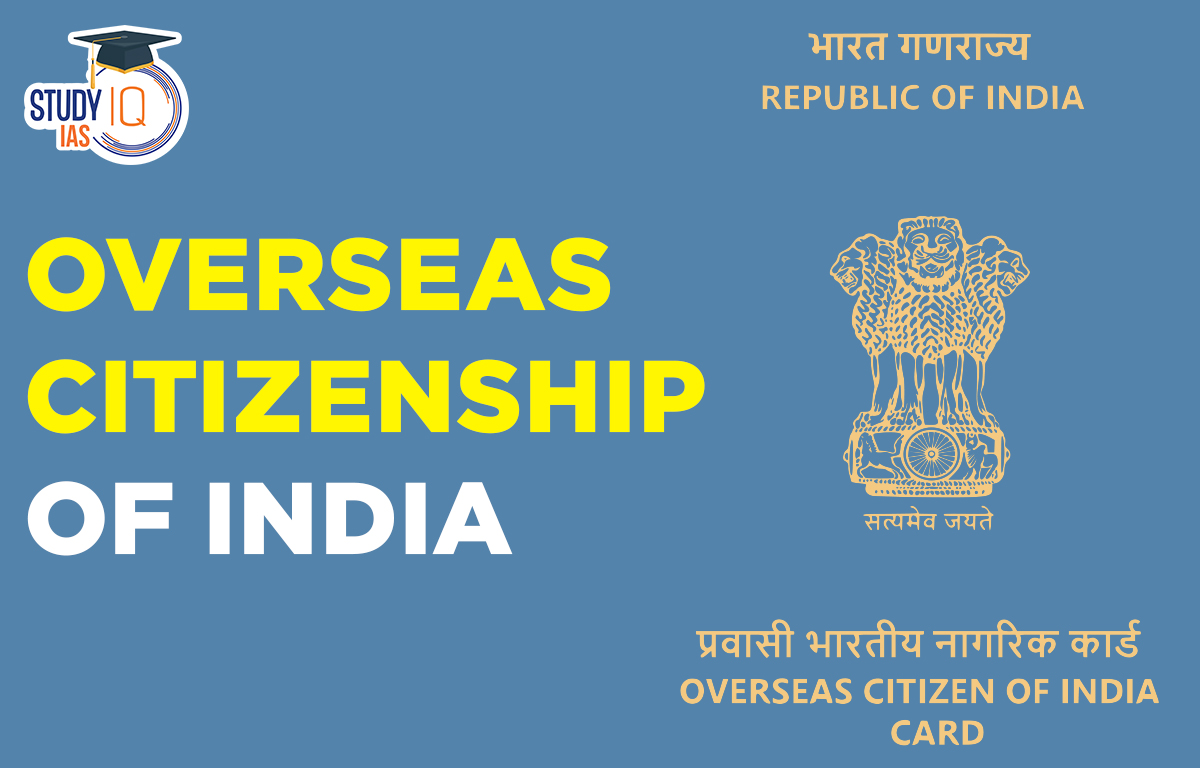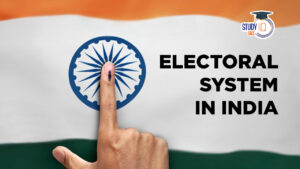Table of Contents
The Ministry of Home Affairs has released a gazette notification under Section 7D(da) of the Citizenship Act, 1955, which declares that OCI status can now be cancelled if the cardholder is found guilty of an offence involving at least two years imprisonment, or charge-sheeted for an offence punishable by seven years or more.
The Overseas Citizenship of India (OCI) Scheme was created by changing the Citizenship Act of 1955 in August 2005. It was introduced to meet the requests for dual citizenship from the Indian diaspora, especially in developed countries. The scheme was officially launched at the Pravasi Bharatiya Divas event in Hyderabad in 2006.
OCI Card can be Cancelled for serious Criminal Charges: Home Ministry Warns
The Ministry of Home Affairs (MHA) recently brought new regulations on the cancellation of Overseas Citizen of India (OCI) cards. The OCI registration will now be subject to cancellation if the cardholder is convicted and sentenced to imprisonment for a period of not less than two years, as per a gazette notification.
| Topic | Details |
|---|---|
| Cancellation Criteria | OCI can be revoked if convicted (≥2 years) or charge-sheeted (≥7 years) |
| OCI Application Update | Guide available for former Indian citizens applying for OCI |
| Renunciations in 2024 | 206,000 Indians gave up citizenship |
| Personal Narrative | Aatish Taseer’s OCI revocation in 2019 spurred a deeper cultural reflection |
The new regulations also provide that a card may be cancelled if the cardholder is named in a charge sheet relating to an offence punishable with imprisonment of seven years or more, even before conviction. This provision under clause (da) of Section 7D of the Citizenship Act, 1955, has been made to consolidate the legal framework relating to OCI status and ensure the integrity of the scheme. The MHA has opined that the provision is applicable whether the conviction was made in India or elsewhere, provided the offence is a recognised one according to Indian law.
Overseas Citizenship of India(OCI)
The Constitution of India does not permit dual citizenship in India (Article 9). Overseas Citizenship allows people of Indian origin living abroad to live and work in India for as long as they want. However, they cannot vote in elections or hold public office.
The Citizenship Amendment Act 2005 came up with the Overseas Citizen of India scheme, which was motivated by the continuous demand for dual citizenship by the diasporas of India. Although the OCI status is not available to anyone who has ever been a Pakistan or Bangladesh. This includes people who were Indian citizens on January 26, 1950, or later, except for those from Pakistan, Bangladesh, or similar countries. OCI holders receive a multi-purpose, lifelong visa for visiting India and do not need to register with Indian authorities for any length of stay.
History of Overseas Citizenship (OCI)
India does not allow dual Citizenship, meaning a person can’t be a citizen of two countries at the same time. To address demands from the Indian diaspora for benefits similar to dual citizenship, the OCI program was launched on January 9, 2006, during the Pravasi Bharatiya Divas event in Hyderabad.
- Before January 9, 2015, OCI cardholders needed a passport with a lifelong “U” visa stamp to travel to India, but this requirement was removed later. In March 2020, visa-free travel for OCI holders was temporarily suspended due to COVID-19.
- On March 4, 2021, certain activities in India required OCI holders to get a Protected Area Permit. Those living in India also needed to register with the Foreigners Regional Registration Officer (FRRO) if they changed their address or job.
- On April 15, 2021, the rules were updated so that OCI cards only need to be renewed once when the passport is renewed for the first time after age 20, making the renewal process easier.
OCI Card
On the recommendation of a high-level committee on the diaspora of India, the Indian Government decided to register a particular category of PIOs (Persons of Indian Origin) mentioned under Section 7 of the Citizenship Amendment Act 1955, as OCI holders by the Citizenship Amendment Act, 2003. The OCI program was launched on Pravasi Bharatiya Diwas on 9th January 2006. The Government of India introduced the Citizenship Amendment Act of 2015, which merged the PIO category with the OCI category.
The first version of the OCI card was issued on 9th January 2006, the second version on 9th January 2015, and the current version was issued on 15th April 2021, to provide a lifetime visa/ permanent residency to the OCI.
Person of Indian Origin (PIO)
A Person of Indian Origin (PIO) is a foreign citizen (except from Pakistan, Afghanistan, Bangladesh, China, Iran, Bhutan, Sri Lanka, and Nepal) who:
- Once held an Indian passport, or
- Has parents, grandparents, or great-grandparents who were born and lived in India as defined in the Government of India Act, 1935, or
- Is married to an Indian citizen or a PIO.
In 2015, the PIO category was merged with the Overseas Citizenship of India (OCI) category.
Eligibility for OCI Card
| Eligibility Condition |
|
Overseas Citizens of India: Rights & Restrictions
| Rights of OCIs | Restrictions on OCIs |
|
|
Overseas Citizen of India Card Renunciation
An Overseas Citizenship of India can make a declaration renouncing the Card, registering him as an OCI cardholder. After the declaration has been registered by the Central Government, the person shall cease to be an Overseas citizen of Indian cardholder. Along with the person, his spouse and minor children also lose their OCI status.
Overseas Citizen of India: Cancellation Status
A person’s OCI Card will be cancelled in the following cases:
- Fraud: If it is found that a person’s OCI status was acquired using fraud, false representation or by hiding something important about his/her eligibility,
- Disaffection towards Constitution: If an OCI Cardholder has shown disaffection towards the Constitution of India,
- Conspiracy with the enemy nation: If the OCI Card holder has conspired with an enemy country with which India is engaged in a war,
- Imprisonment: If an OCI Cardholder, within five years of being issued the card, has been sentenced to jail for two years or more,
- Decision of Government: If the Government of India feels that it is important to cancel a person’s OCI card for the benefit of India, India’s security, India’s friendly relations with other countries or the welfare of people.
- Violation of law: If the OCI Cardholder violates any Indian law or any provisions of the Citizenship Act 1955.
- Dissolution of marriage: If the marriage of an OCI Cardholder has been dissolved by a court or any other legal way. Also, if the marriage has not been dissolved, but the person has married another person while still being married to the first person.
Constitutional Provisions
The Constitution of India covers citizenship in Articles 5 to 11 under Part II. However, it doesn’t have detailed or permanent rules. It mainly identifies people who became Indian citizens on January 26, 1950, when the Constitution came into effect. It also allows Parliament to make laws about citizenship, leading to the Citizenship Act of 1955, which was amended in 2015.


 List of Chief Ministers of Maharashtra F...
List of Chief Ministers of Maharashtra F...
 Electoral System in India 2026: SIR Upda...
Electoral System in India 2026: SIR Upda...
 SLAPP Suits: Meaning, Examples, Impact o...
SLAPP Suits: Meaning, Examples, Impact o...

























